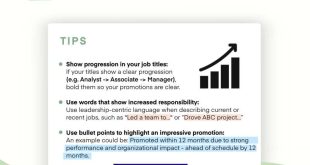Job Description For Probation And Parole Officer – All school search, finder or match results as well as colleges and universities displayed by advertisers as “Featured Schools” or “Sponsored Content” are reviewed for inclusion on this site. The resources, editorial content and school reviews published on this site have been developed independently of the schools that advertise here.
Programs Available: B.S. in psychology; Human Services, M.A.; Psychology, M.S.; Clinical Mental Health Counseling, M.A. Marriage, Couples and Family Counseling, M.A.; School Counseling, M.A.; Faculty Counseling, M.A.; Counseling and Psychology, Ph.D.; Education and Conservation Consultant, Ph.D. The next start date is 8/21/23!
Job Description For Probation And Parole Officer
According to the United States Bureau of Justice Statistics, approximately 1.6 million inmates were incarcerated in United States prisons and jails in 2010. This number is expected to increase in the coming years as our population continues to grow. Although a small percentage of inmates never get out, thousands of former inmates are released back into their facilities every day, and many of these inmates are paroled.
Probation And Parole Officers
Parole is the release of a prisoner before the end of the maximum sentence. Prisoners are released on parole under a number of conditions, however, parole can be revoked at any time for a number of reasons. If a parolee violates any of the conditions of his parole, he is sent back to prison to serve out his sentence.
Because release back into the community can be very difficult for many parolees, a parole officer is assigned to each parolee. A parole officer’s job is to support and monitor parolees as they adjust to their new freedom. They help ex-convicts with everything from finding work to dealing with chronic problems like substance abuse. A parole officer can decide whether a parolee returns to prison.
At times, being a parole officer can be a dangerous job, but it can also be very rewarding. For example, although parole officers work daily with potentially dangerous offenders, they also have the opportunity to help parolees rehabilitate and rehabilitate themselves.
To become a parole officer, you must have at least a bachelor’s degree in corrections, psychology, criminal justice, social work, or a related degree. However, federal parole officers require applicants to hold a master’s degree in one of these fields.
Sc Department Of Probation, Parole And Pardon Services
Featured Programs: Online Master of Social Work-CSWE-Accredited Online MSW from Top 20 Schools of Social Work. Students with a BSW can earn an MSW in 18 months in the advanced standing track.
In addition, parole officer applicants must also pass a number of tests, including mental and physical exams, to be considered for parole officer positions.
Release from a correctional facility is difficult not only for convicts, but also for their loved ones and society. As an ex-convict, it can be difficult to find a job or a place to live. Among all the hurdles parolees face, they are also more likely to revert to their old ways and end up back in prison.
Parole officers strive to ensure that parolees are able to reintegrate into society and adjust to their new lives. By supervising parolees and helping to rehabilitate them, parole officers help keep citizens safe, reduce crime rates, and keep inmates out of overcrowded correctional facilities.
Ppsc Jobs May 2021 For Veterinary Officer & Parole Officer 2023 Job Advertisement Pakistan
Parole officers work closely with other correctional and probation officers. Generally, probation officers specialize in working with either adults or children, although sometimes they may work with both.
A parole officer makes a plan for an inmate before he is released from prison. This is usually done after meeting and interviewing the inmate. When creating a parole plan, parole officers will consider many factors, including the parolee’s needs, desires, and abilities.
One of the primary responsibilities of parole officers is to ensure that parolees comply with all conditions of their parole. This often includes finding and keeping a job, finding a good place to live, getting treatment for any mental health problems they may have, and staying out of trouble. To achieve all this, parole officers can help point parolees in the right direction. For example, they can set up interviews with potential employers or send parolees to mental health facilities, such as substance abuse centers.
As a parole officer, you will also be responsible for supervising and evaluating parolees. You will have regular meetings to check their progress and possibly conduct drug and alcohol tests. Parole monitoring may include going to their home or workplace and contacting a loved one, doctor or employer.
Resume Skills And Keywords For Probation Parole Officer (updated For 2023)
Typically, parole officers work for county and state parole offices. However, this often involves going to courthouses and correctional facilities. Parole officers sometimes have to visit parolees’ homes and places of employment.
U.S. According to the Center for Labor Statistics, correctional officers earned a median annual salary of $53,360 as of May 2014. A correctional officer’s salary can vary depending on education, experience, and location. The BLS estimates that the salary range is $32,810 to $83,920 depending on all the factors mentioned above. Inde.com estimates that the national average salary for correctional officers is currently $53,000. This was in 1962, and from then on the country was determined to disprove Baldwin’s claim – incarceration with a speed and brutality never before seen in the known world. The number of people incarcerated in the United States rose from about 200,000 in Baldwin’s day to more than two million. This trend spawned the term “mass incarceration”—and a nationwide movement to reverse it. But we often overlook the tragedy that follows a plea: probation or parole.
More than four million people are currently under state or federal supervision, threatened with re-incarceration for everything from failing drug tests to spending time with friends or family with criminal records or sleeping in the wrong house. . The latter allows for early release from the parole board, again with probation in lieu of freedom. During the mounting evidence of the arrest, a probation officer and parole officer – “P.O.” – paid less. Enter Jason Hardy’s “Second Chance Team” memo, accounting for the four years he spent as P.O. New Orleans, and he met with over 200 people under his care.
I came out of prison in 2005. For more than three years, I was a P.O. One forced me to take two urine tests a week despite no history of drug use; Second, I was left to my own devices before the paper dropped early, worried that the organization would take me to Vermont for a writers’ workshop. Hardy exists somewhere between those two poles. He found a job listing while going down a nighttime rabbit hole while researching mass incarceration on the Internet. Penny, making $10 an hour on J.C., applied to work for the Louisiana Department of Probation and Parole, trying to get out of multiple arrests. A bachelor’s degree and no criminal record did not qualify him for the position some others sought.
Bureau Of Community Corrections
The struggle to see dominates these pages – although, unfortunately, Hardy, for all his good intentions, is unable to see. In “The Second Chance Club”, he mainly tells stories of drug addiction and dealing. I’m reminded of Nikki Giovanni’s poem “Nikki-Rosa,” in which she hopes that “no white man has reason to write about me/ Because they don’t understand / Black love is black wealth.” Giovanni talks about the ways in which other white writers make black life the subject of their suffering. More than half of “The Second Chance Group” passes before Hardy realizes that “his judgments are based on opinion” and “he misses more than I’ve ever seen.” The same can be said about this book – a story based on an idea, which is more than meets the eye.
What do you call someone who has been convicted of a crime and is currently on probation or parole? Convicted? Criminal? sinner? In Hardy’s book, the word “sinner” occurs 488 times. “Sinner” alternates with a person’s name, a flag that expresses Hardy’s (and our) reluctance to criticize.
Probation parole officer job description, probation officer job description and salary, probation parole officer salary, probation and parole officer, job description for probation officer, probation parole officer, parole officer job description, probation and parole officer duties, job description for juvenile probation officer, probation parole officer jobs, probation and parole officer requirements, probation and parole officer jobs



